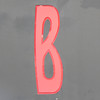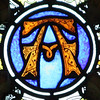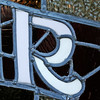the long arm of copyright
todd rundgren is playing covers of robert johnson at a casino near my place tomorrow. while reading up on his state of things i came across an article that included this bit:
What do you listen to at the moment, is there anything that is really ticking your box at the moment?
I have actually been listening up on Robert Johnson, there's a clause in my contract which means I have to cover a certain amount of Robert Johnson songs within the next six months or so, its an odd thing, but it has something to do with publishing and there's a quid pro quo to it, so if I do some Robert Johnson songs, someone else will be encouraged to do versions of my songs so it's a way in the struggling music business to maximize things all around.
So is the idea like a trade-off when you play tunes...
Well I do an EP of Robert Johnson covers which they will market in some way which is still mysterious to me and the whole point is that they control the publishing of Robert Johnson so my recording it adds value to the catalogue and the quid pro quo essentially is that they own the publishing for this record from Arena, and they will be encouraging other people to cover some songs from this record, thereby giving me some writers royalties in the future.
what's interesting here is there's off-hand mention made of a copyright deal i had no awareness of ... and in typical journalistic fashion, the starstruck interviewer didn't stop and say "wait a minute, what the hell are you talking about?"
so i did what i always do, turn to the myriad of friends i have that are experts in arcanery ... in this case, cap'n happy ... former sound engineer at apple, big time music guy ... he's always more than willing to explain things (often with more than a little posturing) ...
he gave me a response so good that i wanted to capture it here. (you're just going to have to tolerate the formatting weirdness from blogger trying to be overly smart ... i'm not taking the time to correct it.)
***
b1- 66er
the part i'm interested in here is the robert johnson quid-pro-quo statements where he's obligated to play RJ in exchange for other artists playing him ... are you familiar with that?
***
cap'n happy
I couldn't say now "normal" this is, but it's based on the complex and
royally fucked up copyright laws.
A song has a number of different copyrights. There's the "mechanical"
rights, which covers the recording (the bits on a CD, groove cut into vinyl,
etc.) It's the physical copy of the song.
There's also the actual notes and the lyrics. Before recordings (covered by
the mechanical rights) there was the "publishing" copyright. This was
captured in music notation (a songbook or more commonly "sheet music").
The publishing rights used to be the only way to obtain a copyright. It was
the only instantiation of the song. In fact, once mechanical rights were
established printing sheet music dropped off dramatically. When the Beatles
were performing, they had to publish songbooks.
You couldn't copyright the record, signified by the "circled C" or ©. A
change in the copyright law allowed for doing away with the printed music,
and granting copyright status based on the reproduction of the actual
recording. The new symbol for copyrighting a phonograph became the "circled
P" or (P). Look for it on your vinyl recordings.
A key thing to understand - the owner of the publishing rights is the one
who OWNS the song. Any reproduction of the music, any sheet music,
performance, or even duplicating the existing CDs, means the owner gets
paid. Even the lyrics are covered separately, and often by yet another
agency. This is why you don't find lyrics printed in CDs anymore. It's
because it costs more and worse it's often difficult to find the agency that
covers the lyrics.
When you hear a cover in a TV commercial or TV show, they're doing that
because it's cheaper. This is because there are so many different rights and
licensing agreements. The show must pay for "performing" rights in all
cases. If they played the actual track from the CD, they'd also have to pay
for "synchronization" rights and "master use" rights and possibly "grand
rights" if it were considered a dramatic use of the song).
Wait, it gets worse. If you were to make a soundtrack of your show, and have
your cover band performing the track you also need to obtain a "mechanical
license" to create that physical reproduction. (and that's yet another
payment).
Note - each of those rights carries a royalty payment, each of which are
collected by different agencies. The one you're most familiar with is BMI
and ASCAP (American Society of Composers, Authors and Publishers). It's
these two agencies that collect royalties anytime you buy music or hear it
anywhere. They are the guys that walk into shopping malls and make notes of
the music playing on the loudspeakers - since that's a "performance" and
therefore are due payment.
Trivia:
The Beatles were writing/performing when music copyright laws were still
based on printed paper. You may remember a track on Yellow Submarine - "Only
a Northern Song" (a left over track that was cut from Sgt Pepper) That song
was written by George, and it's him pissing on their music publisher,
Northern Songs Ltd. It's also the middle finger at John and Paul.
Northern Songs Ltd was established to profit from publishing the Beatles
music, which is a necessary step in obtaining and controlling a copyright.
The Beatles had a share of the company, but since most of the songs were
written Lennon/McCartney they got a much bigger share than George. This
meant when George wrote a song, Lennon/McCartney earned much more that he
did from his own song!
George felt any piece of shit he wrote was making the other two big money.
That's what that song is about. Here's the key line in the lyrics. "It
doesn't really matter what chords I play/What words I say or time of day it
is/As it's only a Northern Song."
As is typical, the songwriters have to sign a contract with their publisher.
Typically it means the songwriter(s) are on the hook to publish their songs
for the next few years through that publisher.
You would know that Michael Jackson "owns" the Beatles music. What the King
of Pop did was purchase those publishing rights from the former Northern
Songs. This deal was actually at the root of Lennon and McCartney ending
their friendship. It was the last straw for Paul and Yoko too, since she
(being a business person) sided with their friend, the King of Pop, when
Paul was trying to buy the rights. Once Jackson became the owner, Paul asked
for an increase in his royalties (and was turned down).
Back to Todd:
I'm not surprised to hear the "owner" of Robert Johnson's music wrote into
Todd's contract a quid-pro-quo. RJ's music has been a huge influence in rock
and roll. He was a strong influence on Led Zepplin among many other
blue/rock bands.
The publisher is clearly trying to get more performances of RJ's music, so
they can collect royalties. By having Todd perform RJ song, it's marketing.
Lots of musicians listen to and respect Todd. They're going to be exposed to
RJ's music. The idea (I have to assume) is other musicians would be
encouraged to listen to other RJ songs, and then want to cover them. That's
marketing.
royally fucked up copyright laws.
A song has a number of different copyrights. There's the "mechanical"
rights, which covers the recording (the bits on a CD, groove cut into vinyl,
etc.) It's the physical copy of the song.
There's also the actual notes and the lyrics. Before recordings (covered by
the mechanical rights) there was the "publishing" copyright. This was
captured in music notation (a songbook or more commonly "sheet music").
The publishing rights used to be the only way to obtain a copyright. It was
the only instantiation of the song. In fact, once mechanical rights were
established printing sheet music dropped off dramatically. When the Beatles
were performing, they had to publish songbooks.
You couldn't copyright the record, signified by the "circled C" or ©. A
change in the copyright law allowed for doing away with the printed music,
and granting copyright status based on the reproduction of the actual
recording. The new symbol for copyrighting a phonograph became the "circled
P" or (P). Look for it on your vinyl recordings.
A key thing to understand - the owner of the publishing rights is the one
who OWNS the song. Any reproduction of the music, any sheet music,
performance, or even duplicating the existing CDs, means the owner gets
paid. Even the lyrics are covered separately, and often by yet another
agency. This is why you don't find lyrics printed in CDs anymore. It's
because it costs more and worse it's often difficult to find the agency that
covers the lyrics.
When you hear a cover in a TV commercial or TV show, they're doing that
because it's cheaper. This is because there are so many different rights and
licensing agreements. The show must pay for "performing" rights in all
cases. If they played the actual track from the CD, they'd also have to pay
for "synchronization" rights and "master use" rights and possibly "grand
rights" if it were considered a dramatic use of the song).
Wait, it gets worse. If you were to make a soundtrack of your show, and have
your cover band performing the track you also need to obtain a "mechanical
license" to create that physical reproduction. (and that's yet another
payment).
Note - each of those rights carries a royalty payment, each of which are
collected by different agencies. The one you're most familiar with is BMI
and ASCAP (American Society of Composers, Authors and Publishers). It's
these two agencies that collect royalties anytime you buy music or hear it
anywhere. They are the guys that walk into shopping malls and make notes of
the music playing on the loudspeakers - since that's a "performance" and
therefore are due payment.
Trivia:
The Beatles were writing/performing when music copyright laws were still
based on printed paper. You may remember a track on Yellow Submarine - "Only
a Northern Song" (a left over track that was cut from Sgt Pepper) That song
was written by George, and it's him pissing on their music publisher,
Northern Songs Ltd. It's also the middle finger at John and Paul.
Northern Songs Ltd was established to profit from publishing the Beatles
music, which is a necessary step in obtaining and controlling a copyright.
The Beatles had a share of the company, but since most of the songs were
written Lennon/McCartney they got a much bigger share than George. This
meant when George wrote a song, Lennon/McCartney earned much more that he
did from his own song!
George felt any piece of shit he wrote was making the other two big money.
That's what that song is about. Here's the key line in the lyrics. "It
doesn't really matter what chords I play/What words I say or time of day it
is/As it's only a Northern Song."
As is typical, the songwriters have to sign a contract with their publisher.
Typically it means the songwriter(s) are on the hook to publish their songs
for the next few years through that publisher.
You would know that Michael Jackson "owns" the Beatles music. What the King
of Pop did was purchase those publishing rights from the former Northern
Songs. This deal was actually at the root of Lennon and McCartney ending
their friendship. It was the last straw for Paul and Yoko too, since she
(being a business person) sided with their friend, the King of Pop, when
Paul was trying to buy the rights. Once Jackson became the owner, Paul asked
for an increase in his royalties (and was turned down).
Back to Todd:
I'm not surprised to hear the "owner" of Robert Johnson's music wrote into
Todd's contract a quid-pro-quo. RJ's music has been a huge influence in rock
and roll. He was a strong influence on Led Zepplin among many other
blue/rock bands.
The publisher is clearly trying to get more performances of RJ's music, so
they can collect royalties. By having Todd perform RJ song, it's marketing.
Lots of musicians listen to and respect Todd. They're going to be exposed to
RJ's music. The idea (I have to assume) is other musicians would be
encouraged to listen to other RJ songs, and then want to cover them. That's
marketing.
CH
***
b1-66er
i'm putting this on my 'blog for general world consumption and my future reference ...
what strikes me as weird is robert johnson died in 1938 ... and there's only a handful of recordings that exist that are truly his ... that's one long copyright.










0 Comments:
Post a Comment
<< RETURN TO B1-66ER'S ENTIRE WORLD